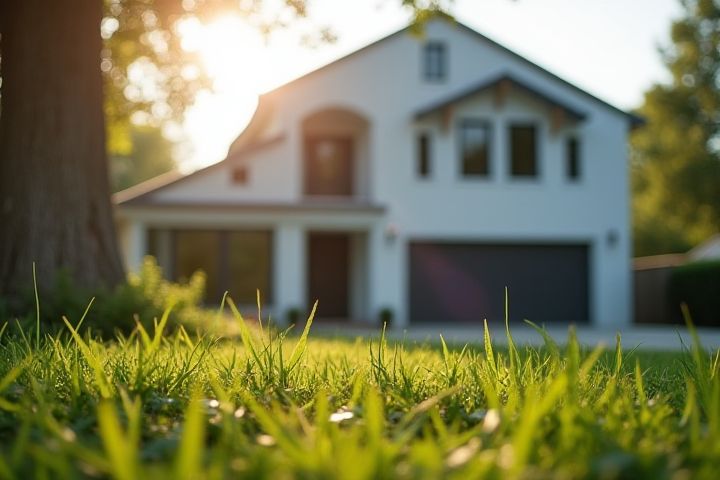
House location significantly impacts property value due to several key factors such as proximity to essential amenities, quality of local schools, and overall neighborhood safety. Areas near public transportation, shopping centers, and parks typically see higher demand, resulting in increased home prices. Quality schools attract families, making residential properties in these districts more desirable and valuable. Safety and crime rates also play a crucial role; neighborhoods perceived as safe encourage investment and can lead to higher resale values. You should consider these elements when evaluating a property, as they can greatly affect your future investment returns.
Why House Location Influences Value
Proximity to schools
Proximity to reputable schools significantly enhances a home's market value, as families prioritize access to quality education. Homes located within a desirable school district often attract buyers willing to pay a premium for educational opportunities. Being near schools not only provides convenience but also fosters a sense of community and safety, making neighborhoods more appealing. Consequently, if you're looking to invest in real estate, consider properties near top-rated schools, as they tend to have better long-term appreciation rates.
Access to public transport
Access to public transport significantly enhances a house's value due to increased convenience and connectivity for residents. Properties located near bus stops or train stations offer easy commutes to workplaces, schools, and urban amenities, making them more appealing to homebuyers. Moreover, neighborhoods with effective public transport options often experience higher demand, leading to better resale potential and property appreciation. When considering your next home, proximity to reliable transport can be a crucial factor in both lifestyle and investment opportunities.
Local crime rates
Local crime rates significantly influence house values, as safety is a top priority for potential buyers. Higher crime rates typically deter interest, leading to lower property prices due to perceived risk. Conversely, areas with lower crime rates attract families and investors, creating demand that drives up home values. Your investment in real estate should consider these local crime statistics, as a safe neighborhood often correlates with long-term appreciation of property values.
Nearby amenities
House location significantly impacts its value, primarily due to proximity to nearby amenities. Properties situated close to essential services such as schools, grocery stores, parks, and healthcare facilities tend to attract higher demand, appealing particularly to families and professionals seeking convenience. Easy access to public transportation and recreational areas further enhances a home's desirability, driving up property values. In essence, the availability of such amenities not only enriches your lifestyle but also represents a critical factor in the real estate market.
Neighborhood desirability
The desirability of a neighborhood significantly impacts the value of homes within it, with prime locations often commanding higher prices due to amenities, safety, and community features. Homes in highly-rated school districts can see values surge by as much as 10-20%, reflecting buyers' priorities for education. Proximity to parks, shopping centers, and public transportation enhances convenience, making properties more attractive, which can lead to quicker sales and higher offers. Your home's location in a desirable neighborhood can greatly influence not just its appraisal value but also its long-term investment potential.
Employment opportunities
House location significantly influences property value due to its proximity to employment opportunities. Residential areas near major job hubs, such as city centers or industrial parks, typically experience higher demand, driving up prices. For instance, homes within a 30-minute commute to a thriving tech district or financial center can see an uptick in valuation by as much as 20% compared to those in less accessible areas. As businesses continue to cluster in specific regions, securing a home near these employment centers can be a strategic investment for you, ensuring not only a comfortable living environment but also long-term financial growth.
Environmental factors
Environmental factors play a significant role in determining house value, with proximity to parks, rivers, and scenic views enhancing appeal. Properties situated near green spaces often see a price increase of 10% to 20% compared to those without such access. Noise pollution, high traffic, and industrial zones can diminish property values, sometimes by as much as 25%. Moreover, areas with clean air quality and low crime rates typically attract buyers, leading to longer-term appreciation in value.
Economic growth in the area
The location of a house significantly influences its value, particularly due to economic growth in the surrounding area. Properties situated near thriving businesses and job opportunities often appreciate faster, as increased employment can lead to higher demand. For example, a neighborhood experiencing a surge in tech company investments can see home values rise by 10-15% annually. Understanding local economic indicators, such as unemployment rates and income levels, can provide valuable insights into potential real estate investments.
Future development plans
The location of your house significantly influences its value, especially in the context of future development plans. Areas earmarked for infrastructure improvements, such as new schools, hospitals, or public transport options, tend to see a surge in property values, sometimes increasing by 15-20% in just a few years. Additionally, neighborhoods with proposed commercial development, like shopping centers or business districts, can attract more buyers, enhancing demand and driving prices upward. Staying informed about local zoning laws and development proposals allows you to strategically invest in real estate, ensuring your property remains a valuable asset.
Traffic and noise levels
The house location significantly impacts its value due to traffic and noise levels, which can affect your daily living experience. Homes situated near major roads or highways often experience higher noise levels, leading to decreased resale value; studies show that properties within 500 feet of busy streets can lose up to 10-15% of their market value. Conversely, houses in quieter neighborhoods tend to fetch higher prices, as they provide a more serene environment, attracting families and individuals seeking peace. Proximity to public transportation and essential amenities can also elevate property values, balancing convenience with noise considerations for potential buyers.
